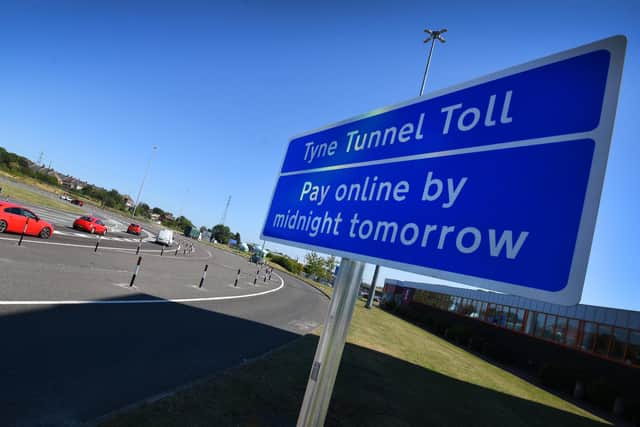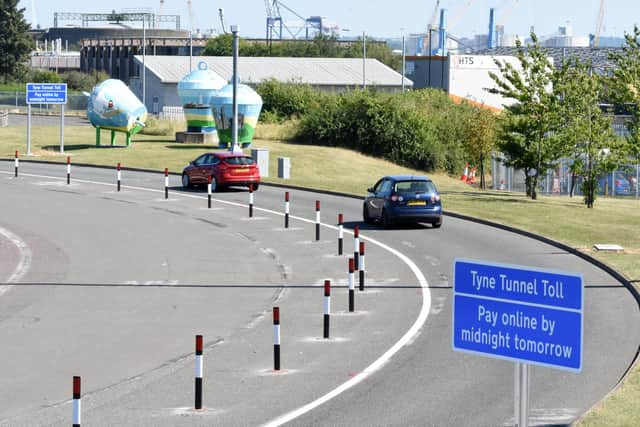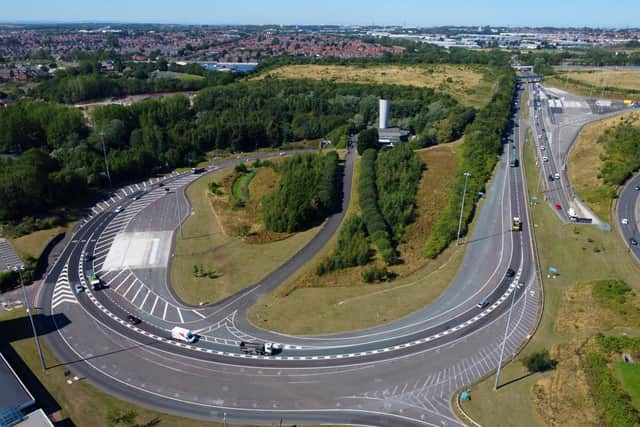Tyne Tunnel announces completion of all works as route has busiest ever month - with almost 1.6million vehicles passing through
and live on Freeview channel 276
The works were carried out to remove the former tollbooths at the tunnels after the switch to the controversial new system, which bosses say improves traffic flow and cuts carbon emissions – but has proved a thorn in the side of many drivers slapped with fines.
Permanent blue signs now inform drivers the tunnel is a toll road and remind them to pay by midnight the next day, and how to pay.
Advertisement
Hide AdAdvertisement
Hide AdUnder the new system, cameras automatically register journeys and payments are then made online, by phone or at a PayPoint.


The change to a cashless system was met with some controversy after it was introduced as unaware drivers were issued with fines, or in some cases hit with them due to hiccups in the system.
But bosses at operator TT2 say the change has been a success, adding July 2022 was the busiest month in the crossing’s 55-year history with just under 1.6million vehicles passed through.
Chief executive Philip Smith said: “By removing the toll booths, we have been able to shave valuable time off journeys which is all the more important now that we are experiencing record levels of vehicles passing through.


Open-road-tolling is helping us keep queues as short as possible during peak times.
Advertisement
Hide AdAdvertisement
Hide Ad“The fact that traffic levels have remained broadly the same on other regional road hotspots, yet the Tyne Tunnels traffic is rising, is testament to the success of the switch to open-road-tolling.
"The tunnels have become more popular because journeys are quicker, smoother and the expanded range of payment options has increased convenience for many drivers.
“There is now also less congestion, reduced emissions and better local air quality which are some of the other key reasons behind the decision to ditch the toll-booths.”


According to TT2, Northbound journeys are 33 seconds faster and southbound trips, 29 seconds quicker – on average across a day than before the new system was introduced.
Advertisement
Hide AdAdvertisement
Hide AdThe operator also say CO₂ emissions have been reduced by 90% since the cashless system was introduced and the percentage of customers pre-paying for their journey has risen from 60% in June 2021 to over 77% in June this year.
